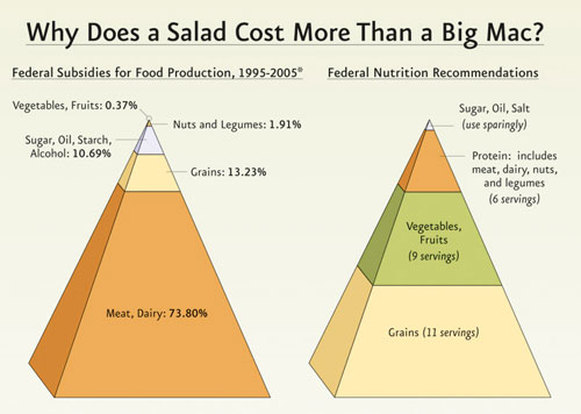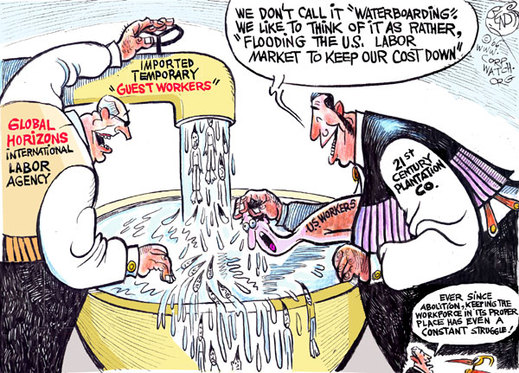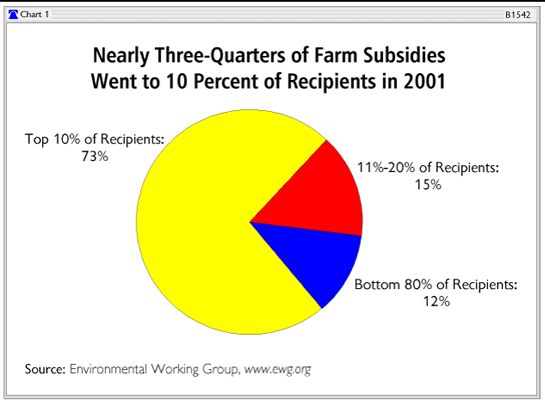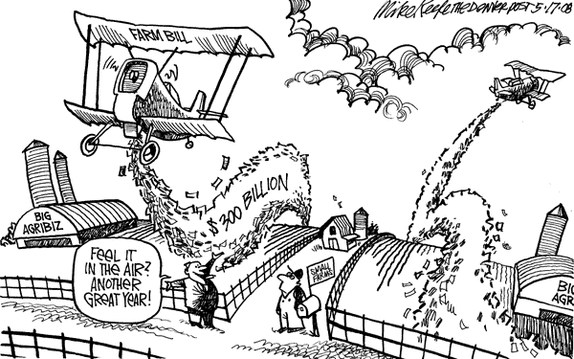Industrialized food is cheaper, but the cost is being diverted. We are paying the price, in other ways:
Industrialized and processed foods are less nutritious. The health risks associated with processed foods (almost always high in sodium, sugar and starch) have become more widely understood. But even simple foods like produce lack nutrition when they have been grown using industrial processes - they have not been nourished by healthy soils and their natural vitamin content has been diminished by chemical-use. Here's more about this from food guru, Michael Pollan:
(2) Human Rights
In North America, so much of our food is harvested by immigrants who are being taken advantage of. These migrant workers often live in and work under inhumane conditions - all for under minimum wage. Part of the money we save when we buy cheap food is at the cost of these farm workers' dignities. It's just plain unfair.
To learn more about this social justice issue, visit Justicia for Migrant Workers (J4MW).
(3) The (one and only) Environment
The larger the farm the larger the subsidy. Does that make any sense? Not to me, it doesn't. The largest farms these days usually have the greatest net worth to begin with, since they've been cutting all kinds of costs in disregard for the environment (See my previous blog, "Sustaining Food: An environmental perspective," for more on this). So while the smaller farms that are more likely to be nurturing the ecosystem services, essential to life, are being starved out of business, these big multinationals are being spoon fed.




 RSS Feed
RSS Feed
